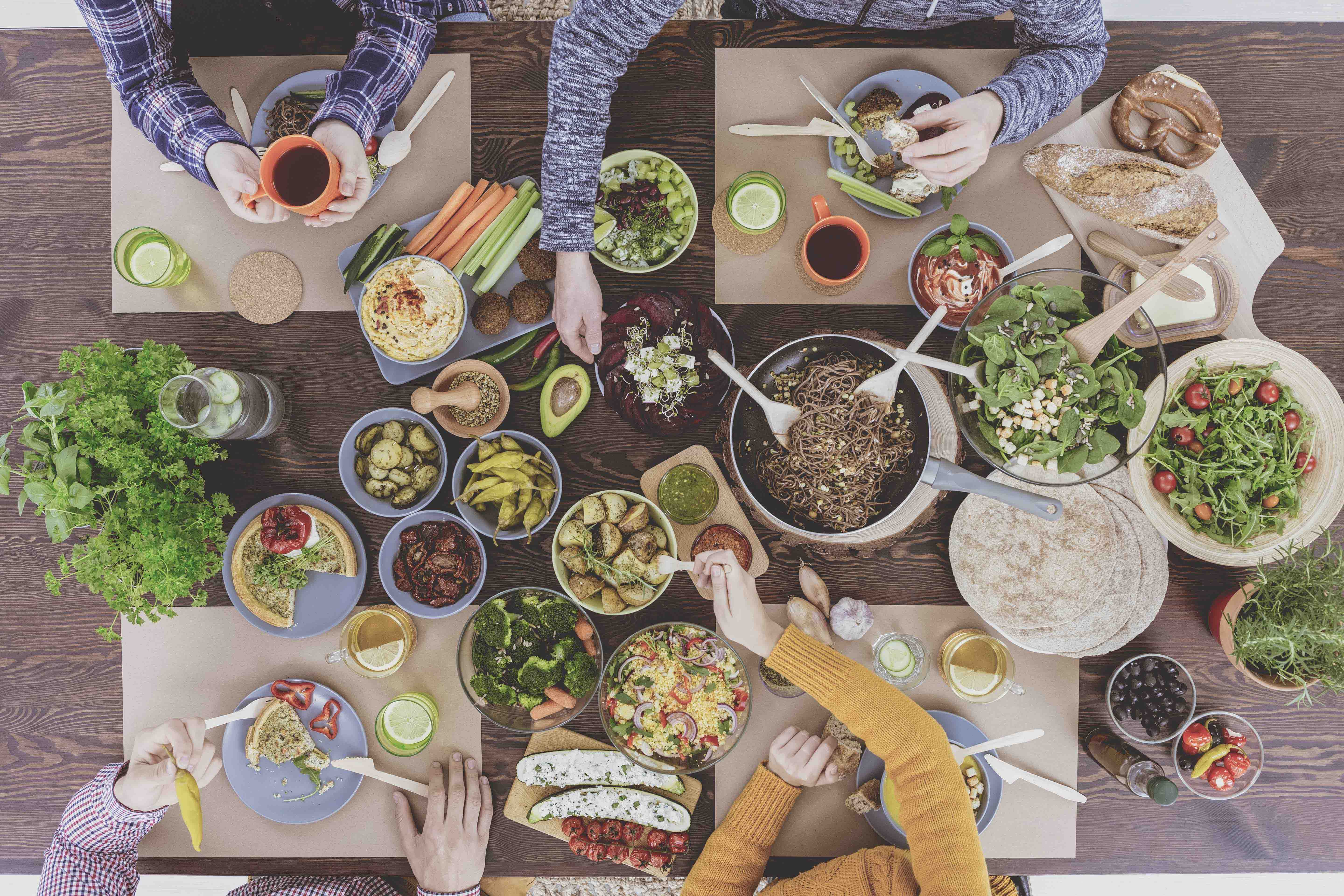
When it comes to nutrition, many studies in the 20th century have revolved around the health benefits of single nutrients and vitamins. However, recently we have concluded that these nutrients work synergistically. Consistently eating plant-based meals leads to decrease of ill-being and diseases. There are other reasons to adopt a plant-based diet. Health, economic, environmental, ethical, and religious are some of them.
Well known health organizations that provide dietary guidelines for Diabetes Associations, Heart Associations, and the Cancer Society all agree that a plant-based diet reduces the risk of heart disease, obesity, and many forms of cancer. However, for fear of sounding too radical, these same organizations continue to include processed meats and other animal products in their dietary guidelines.
Why is a plant-based diet still taboo? Because of traditional, cultural, socioeconomic, and educational barriers. Food industries and marketing have also been successful in integrating unhealthy foods into the common diet through mediums such as holidays and yearly festivities. However, with the weight of evidence tipping in favor of a plant-based diet, choosing a “less traditional” but healthier lifestyle can help to overturn some of society's barriers.
Studies show that red meats, especially processed meats, are linked to colorectal cancer and that the risk of heart disease can be reduced by replacing these meats with healthier sources of protein, such as beans, legumes, and nuts.
Having a plant-based menu is not that intimidating. If you evaluate your meal plan for one week, chances are that 70-80% of your meals could easily be transformed into a vegetarian meal. You can even rely on some healthy meatless protein options, such as those made from wheat-gluten, soy, and mycoprotein. For simpler “meaty” texture you can also add sautéed mushrooms or tofu to meals.
Cooking with fruits and vegetables is quite easy. They are packed with flavor and need very little seasoning or time to cook. Fruits and vegetables are not only delicious, but these colorful plant foods deliver perfect packages of nutrition and disease-fighting properties, which are the best weapons for preventing most chronic diseases. Most diseases, such as cancer, are largely due to a chronic depletion of reduced levels of nature's colorful healers. Fruits and vegetables are energy- and phytonutrient-packed foods that serve as protection for the body's immune system. They aid in weight loss or healthy weight maintenance, healing, and disease prevention.
Vegetables are important when it comes to weight loss, cancer prevention, and diabetes treatment because they are highly alkaline, fiber-packed sources of minerals, vitamins, protein and essential fatty acids. Fruits are also high in antioxidants, phytonutrients, fiber, and disease-fighting properties. Alkaline foods play an important role in relieving joint pain and promoting lean body mass in the elderly. Studies have shown that multivitamin supplements cannot replace the nutritive benefit of consuming the main food source of vitamins.
The vegetable family can be divided into two categories non-starchy and starchy vegetables. Non- starchy vegetables can further be classified as dark green leafy vegetables and rainbow vegetables. Starchy vegetables include sweet potatoes, potatoes, parsnips, pumpkins, squash, corn, yams, and some beans. We should get at least half of our vegetable intake from non-starchy, leafy dark-green vegetables such as romaine lettuce, spinach, kale, beet greens, bok-choy, collard greens, mustard greens, Swiss chard and turnip greens. The darker the leaves the higher their medicinal and healing properties.
Every step towards implementing a healthy plant-based diet reduces the risk of disease and improves quality of life by lessening pain, inflammation, and chronic disease complications. Recent studies show that one of the most responsible things we can do to reduce our carbon footprint is to adopt a vegan diet which reduces 0.8 tonnes of CO2 emission per year. Investing in fresh or frozen vegetables and using plant-based quality protein makes more economic sense as it requires less corn and land. Additionally, consistency in eating healthy reduces expenses with medication, doctor’s visits, and hospital stay.
In short, we can lead a successful, thriving, healthy, and happy life on a plant-based diet. Preparing healthy meals can be simple and timely as well as economical and planet friendly. If you are interested in more information on how to adopt a plant-based diet please contact us or read through the articles below.